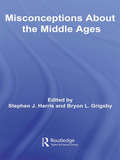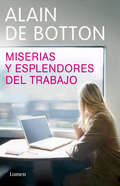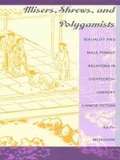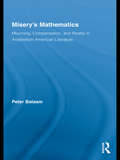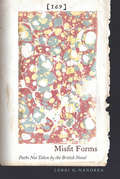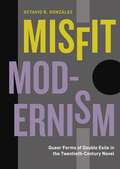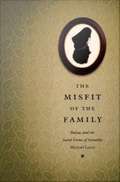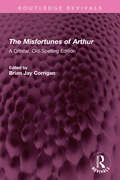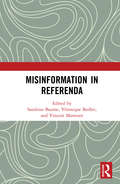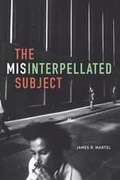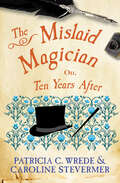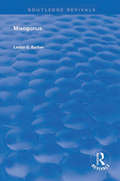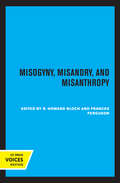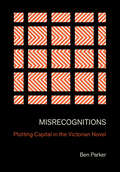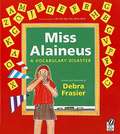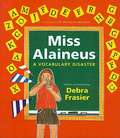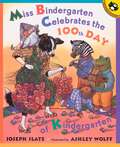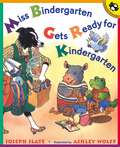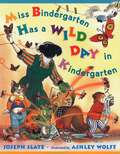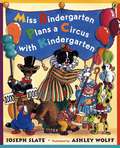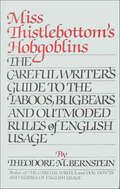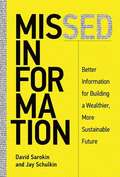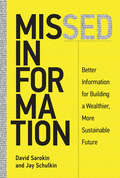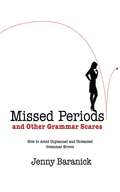- Table View
- List View
Misconceptions About the Middle Ages (Routledge Studies in Medieval Religion and Culture)
by Stephen J. Harris Bryon L. GrigsbyInterest in the middle ages is at an all time high at the moment, thanks in part to "The Da Vinci Code." Never has there been a moment more propitious for a study of our misconceptions of the Middle Ages than now. Ranging across religion, art, and science, Misconceptions about the Middle Ages unravels some of the many misinterpretations that have evolved concerning the medieval period, including: the church war science art society With an impressive international array of contributions, the book will be essential reading for students and scholars involved with medieval religion, history, and culture.
Miserias y esplendores del trabajo
by Alain de BottonUna reflexión irónica sobre el mundo del trabajo y del consumo El autor mismo define su libro como un himno a la inteligencia, peculiaridad, la belleza y el horror de los lugares de trabajo y al hecho extraordinario de que el trabajo sea, junto al amor, la principal fuente de sentido de nuestra vida. Hace poco más de un siglo, nuestros antepasados sabían todavía el origen preciso de lo que poseían y comían. Estaban familiarizados con los animales, las herramientas y tenían una relación cómplice con su entorno de trabajo. Ahora, todo nos llega envuelto en fundas cargadas de etiquetas y poco falta para que los niños crean que los pollos nacen en los supermercados. Dispuesto a romper esta barrera, Alain de Botton se aventura primero a darse un paseo por los muelles del puerto de Londres, para desplazarse luego a una fábrica de galletas en el interior del país, luego viaja a las Maldivas con los pescadores encargados de unafábrica de conservas para acabar en los despachos de una empresa que se dedica a la contabilidad. Lo que más le interesa es hablar con las personas que están cerca de los procesos productivos para ilustrar las peculiaridades del "homo faber", y las bondades de casi cualquier trabajo cuando lo examinamos de cerca. Tras estas conversaciones, nada es igual ya: la cereza que corona una galleta, la tapicería de un avión o una lata cualquiera de sardinas tienen a alguien con cara y ojos que estuvo al cargo de su proceso, y de repente el trabajo se vuelve algo menos abstracto y más cercano a los anhelos y las angustias del ser humano. Culto, irónico, maestro de la anécdota, Alain de Botton nos habla de Diderot y Voltaire mientras camina por los hangares de una gran fábrica y reflexiona sobre la naturaleza del arte mientras recorre las líneas de una central eléctrica. «Prepararse para la muerte con preceptos sabios es ofrecerle demasiado respeto. Dejemos que nos sorprenda mientras transportamos pasta de madera o buscamos la mejor manera de fabricar un frasco de perfume: hagamos que la muerte nos pille mientras hacemos algo para la vida.» Con estas palabras se cierra el libro y se abren un montón de puertas insólitas para el lector. La crítica ha dicho:«Si es que todavía hace falta hablar de las bondades de un escritor como Alain de Botton, pues les diré que en Miserias y esplendores del trabajo este hombre se supera a sí mismo en la perspicacia de sus reflexiones y en su complicidad con el ser humano.»Geoff Dyer «De Botton te lleva a pensar en cómo vives pero, sobre todo, en cómo podrías vivir.»The Times
Misers, Shrews, and Polygamists: Sexuality and Male-Female Relations in Eighteenth-Century Chinese Fiction
by Keith McmahonHaving multiple wives was one of the mainstays of male privilege during the Ming and Qing dynasties of late imperial China. Based on a comprehensive reading of eighteenth-century Chinese novels and a theoretical approach grounded in poststructuralist, psychoanalytic, and feminist criticism, Misers, Shrews, and Polygamists examines how such privilege functions in these novels and provides the first full account of literary representations of sexuality and gender in pre-modern China.In many examples of rare erotic fiction, and in other works as well-known as Dream of the Red Chamber, Keith McMahon identifies a sexual economy defined by the figures of the "miser" and the "shrew"--caricatures of the retentive, self-containing man and the overflowing, male-enervating woman. Among these and other characters, the author explores the issues surrounding the practice of polygamy, the logic of its overvaluation of masculinity, and the nature of sexuality generally in Chinese society. How does the man with many wives manage and justify his sexual authority? Why and how might he escape or limit this presumed authority, sometimes to the point of portraying himself as abject before the shrewish woman? How do women accommodate or coddle the man, or else oppose, undermine, or remold him? And in what sense does the man place himself lower than the spiritually and morally superior woman?The most extensive English-language study of Chinese literature from the eighteenth century, this examination of polygamy will interest not only students of Chinese history, culture, and literature but also all those concerned with histories of gender and sexuality.
Misery's Mathematics: Mourning, Compensation, and Reality in Antebellum American Literature (Literary Criticism and Cultural Theory)
by Peter BalaamThis book reveals the strain of a moment in American cultural history that led several remarkable writers -- including Emerson, Warner, and Melville -- to render the stark rupture of loss in innovative ways. Pushing Protestant culture's sense of loss into secular terrain, these three key writers rejected Calvinist and sentimental models of bereavement, creating instead the compensations of a mature American literature whose 'originality' stemmed from its capacity to mourn the loss of a common culture and, through such mourning, to assent to new social and cultural realities. Balaam locates this appeal to 'reality' in the analogies antebellum writers drew between their experience of bereavement, and the experiences of uncertainty and disillusionment, that followed the revolutions in science, the winding down of creedal systems and the economic instability typifying the pre-Civil War era.
Misfit Forms: Paths Not Taken by the British Novel
by Lorri G. NandreaThe complicated junctions negotiated by the novel during the eighteenth century reveal not only achievements but also exclusions. Misfit Forms offers a speculative reconstruction of roads less traveled. What if typographical emphasis and its associated transmission of sensuality and feeling had not lost out to “transparent” typography and its paradigms of sympathetic identification? What was truncated when cumulative narrative structures were declared primitive in relation to the unified teleological plot? What visions of the novel’s value as an arena for experience were sidelined when novel reading was linked to epistemological gain? Reading novels by Sterne, Charlotte Bronte, Defoe, Gaskell, Hardy, and Woolf in tandem with less-known works, Nandrea illuminates the modes and techniques that did not become mainstream. Following Deleuze, Nandrea traces the “dynamic repetitions” of these junctures in the work of later writers. Far from showing the eclipse of primitive modes, such moments of convergence allow us to imagine other possibilities for the novel’s trajectory.
Misfit Modernism: Queer Forms of Double Exile in the Twentieth-Century Novel (Refiguring Modernism #33)
by Octavio R. GonzálezIn this book, Octavio R. González revisits the theme of alienation in the twentieth-century novel, identifying an alternative aesthetic centered on the experience of double exile, or marginalization from both majority and home culture. This misfit modernist aesthetic decenters the mainstream narrative of modernism—which explores alienation from a universal and existential perspective—by showing how a group of authors leveraged modernist narrative to explore minoritarian experiences of cultural nonbelonging.Tying the biography of a particular author to a close reading of one of that author’s major works, González considers in turn Nella Larsen’s Quicksand, Wallace Thurman’s The Blacker the Berry, Jean Rhys’s Quartet, and Christopher Isherwood’s A Single Man. Each of these novels explores conditions of maladjustment within one of three burgeoning cultural movements that sought representation in the greater public sphere: the New Negro movement during the Harlem Renaissance, the 1920s Paris expatriate scene, and the queer expatriate scene in Los Angeles before Stonewall. Using a methodological approach that resists institutional taxonomies of knowledge, González shows that this double exile speaks profoundly through largely autobiographical narratives and that the novels’ protagonists challenge the compromises made by these minoritarian groups out of an urge to assimilate into dominant social norms and values.Original and innovative, Misfit Modernism is a vital contribution to conversations about modernism in the contexts of sexual identity, nationality, and race. Moving beyond the debates over the intellectual legacies of intersectionality and queer theory, González shows us new ways to think about exclusion.
Misfit Modernism: Queer Forms of Double Exile in the Twentieth-Century Novel (Refiguring Modernism)
by Octavio R. GonzálezIn this book, Octavio R. González revisits the theme of alienation in the twentieth-century novel, identifying an alternative aesthetic centered on the experience of double exile, or marginalization from both majority and home culture. This misfit modernist aesthetic decenters the mainstream narrative of modernism—which explores alienation from a universal and existential perspective—by showing how a group of authors leveraged modernist narrative to explore minoritarian experiences of cultural nonbelonging.Tying the biography of a particular author to a close reading of one of that author’s major works, González considers in turn Nella Larsen’s Quicksand, Wallace Thurman’s The Blacker the Berry, Jean Rhys’s Quartet, and Christopher Isherwood’s A Single Man. Each of these novels explores conditions of maladjustment within one of three burgeoning cultural movements that sought representation in the greater public sphere: the New Negro movement during the Harlem Renaissance, the 1920s Paris expatriate scene, and the queer expatriate scene in Los Angeles before Stonewall. Using a methodological approach that resists institutional taxonomies of knowledge, González shows that this double exile speaks profoundly through largely autobiographical narratives and that the novels’ protagonists challenge the compromises made by these minoritarian groups out of an urge to assimilate into dominant social norms and values.Original and innovative, Misfit Modernism is a vital contribution to conversations about modernism in the contexts of sexual identity, nationality, and race. Moving beyond the debates over the intellectual legacies of intersectionality and queer theory, González shows us new ways to think about exclusion.
The Misfit of the Family: Balzac and the Social Forms of Sexuality
by Michael LuceyIn more than ninety novels and novellas, Honor de Balzac (1799-1850) created a universe teeming with over two thousand characters. The Misfit of the Family reveals how Balzac, in imagining the dense, vividly rendered social world of his novels, used his writing as a powerful means to understand and analyze--as well as represent--a range of forms of sexuality. Moving away from the many psychoanalytic approaches to the novelist's work, Michael Lucey contends that in order to grasp the full complexity with which sexuality was understood by Balzac, it is necessary to appreciate how he conceived of its relation to family, history, economics, law, and all the many structures within which sexualities take form. The Misfit of the Family is a compelling argument that Balzac must be taken seriously as a major inventor and purveyor of new tools for analyzing connections between the sexual and the social. Lucey's account of the novelist's deployment of "sexual misfits" to impel a wide range of his most canonical works--Cousin Pons, Cousin Bette, Eugenie Grandet, Lost Illusions, The Girl with the Golden Eyes--demonstrates how even the flexible umbrella term "queer" barely covers the enormous diversity of erotic and social behaviors of his characters. Lucey draws on the thinking of Michel Foucault and Pierre Bourdieu and engages the work of critics of nineteenth-century French fiction, including Naomi Schor, D. A. Miller, Franco Moretti, and others. His reflections on Proust as Balzac's most cannily attentive reader suggest how the lines of social and erotic force he locates in Balzac's work continued to manifest themselves in twentieth-century writing and society.
The Misfortunes of Arthur: A Critical, Old-Spelling Edition (Routledge Revivals)
by Thomas HughesThe Misfortunes of Arthur, written by Thomas Hughes is one of the earliest printed plays from the English Renaissance and, as such, deserves its place of interest in dramaturgical studies for its historical significance. It offers a detailed literary evocation of Elizabethan anti-imperial thinking and a genuine desire to debate controversial questions. The play takes a sceptical view of Arthur and provides evidence of a political point of view that must have had a significant number of supporters in 1588 when it was performed for Elizabeth I on the eve of the Spanish Armada. It is also not difficult to find themes in The Misfortunes of Arthur which would find expression again in the later Renaissance drama. The fact that the play shares affinities with such diverse plays as Gorboduc and The Spanish Tragedy indicates that it holds a pivotal position in a time of theatrical flux. It provides a single, concise encapsulation of the Arthurian chronicle in a literary form, a drama, that students will find more engaging than chronicles or lengthy romances. This reissue of the 1992 Garland edition is of value to scholars because of the original spelling and source study contained within the work. It also contains helpful historical context in the introduction and a useful diagram of the Elizabethan stage which both students and scholars will find useful.
Misinformation in Referenda
by Sandrine Baume Véronique Boillet Vincent MartenetThe book identifies the impact of misinformation in the context of referenda. While the notion of misinformation is at the centre of current events and is the subject of several studies, it has rarely been addressed in the context of referenda or from a multidisciplinary and comparative perspective. This book fills this gap. Different legal orders have been chosen because of their extensive referendum practices (California and Switzerland); a recent legislative process on the issue of misinformation (Germany, France, and Canada); or recent experience with a vote during which it was considered that false information had been disseminated (Brexit, Catalan independence, and Italian constitutional referendum of 2016). By bringing together authors from the political and legal sciences, the book focuses on combining the expertise of researchers from different backgrounds and origins in order to propose innovative solutions. In this regard, the book is characterized by the fact that it does not aim to combat misinformation per se, but develops suggestions meant to guarantee the conditions of formation of the political will during referenda. The book will be an invaluable resource for legal scholars, political scientists, and specialists of political communication. Outside the world of academia, the book may draw the attention of policy-makers, practitioners, and journalists confronted with the challenges of misinformation or disinformation.
The Misinterpellated Subject
by James R. MartelAlthough Haitian revolutionaries were not the intended audience for the Declaration of the Rights of Man, they heeded its call, demanding rights that were not meant for them. This failure of the French state to address only its desired subjects is an example of the phenomenon James R. Martel labels "misinterpellation." Complicating Althusser's famous theory, Martel explores the ways that such failures hold the potential for radical and anarchist action. In addition to the Haitian Revolution, Martel shows how the revolutionary responses by activists and anticolonial leaders to Woodrow Wilson's Fourteen Points speech and the Arab Spring sprang from misinterpellation. He also takes up misinterpellated subjects in philosophy, film, literature, and nonfiction, analyzing works by Nietzsche, Kafka, Woolf, Fanon, Ellison, Ta-Nehisi Coates, and others to demonstrate how characters who exist on the margins offer a generally unrecognized anarchist form of power and resistance. Timely and broad in scope, The Misinterpellated Subject reveals how calls by authority are inherently vulnerable to radical possibilities, thereby suggesting that all people at all times are filled with revolutionary potential.
The Mislaid Magician: Or, Ten Years After (The Cecelia and Kate Novels #3)
by Patricia C. Wrede Caroline StevermerFamily affairs don&’t stop cousins Cecelia and Kate from their magical duties in Regency England—&“A thoroughly enchanting confection&” (Kirkus Reviews). It&’s been a decade since Kate and Cecelia foiled Napoleon&’s plot to reclaim the French crown. The cousins now have estates, children, and a place at the height of wizarding society. It is 1828, and though magic remains at the heart of the British Empire, a new power has begun to make itself felt across England: the steam engine. As iron tracks crisscross the countryside, the shaking of the locomotives begins to disrupt the workings of English magic, threatening the very foundations of the Empire. A foreign wizard on a diplomatic mission to England vanishes, and the Prime Minister sends Cecelia&’s husband to investigate. In order to accompany her husband to the north of England, Cecelia leaves her children in Kate&’s care. As Cecelia and James fight for the future of magic, Kate is left with a no less daunting problem: how to care for a gaggle of disobedient, spell-casting tots. This ebook features illustrated biographies of Patricia C. Wrede and Caroline Stevermer including rare photos and never-before-seen documents from the authors&’ personal collections.
Misogonus: Edited with an Introduction (Routledge Revivals)
by Lester E. BarberOriginally published in 1979, this volume contains the full text of Misogonus, edited and with an introduction and additional textual notes.
Misogyny, Misandry, and Misanthropy (Representations Books #3)
by R. Howard Bloch Frances FergusonThis title is part of UC Press's Voices Revived program, which commemorates University of California Press’s mission to seek out and cultivate the brightest minds and give them voice, reach, and impact. Drawing on a backlist dating to 1893, Voices Revived makes high-quality, peer-reviewed scholarship accessible once again using print-on-demand technology. This title was originally published in 1989.
Misrecognitions: Plotting Capital in the Victorian Novel
by Ben ParkerMisrecognitions mounts a vigorous defense of the labyrinthine plotting of Victorian novels, notorious for their implausible concluding revelations and coincidences. Critics have long decried Victorian recognition scenes—the reunions and retroactive discoveries of identity that too conveniently bring the story to a close—as regrettable contrivances. Ben Parker counters this view by showing how these recognition scenes offer a critique of the social and economic misrecognitions at work in nineteenth-century capitalism. Through a meticulous analysis of novels by Charles Dickens, Anthony Trollope, and Henry James, as well as Arthur Conan Doyle's Sherlock Holmes stories, Misrecognitions tracks how the Victorian novel translates the financialized abstractions of capital into dramas of buried secrets and disguised relations. Drawing on Karl Marx's account of commodity fetishism and reification, Parker contends that, by configuring capital as an enigma to be unveiled, Victorian recognition scenes dramatize the inversions of agency and temporality that are repressed in capitalist production. In plotting capital as an agent of opacity and misdirection, Victorian novels and their characteristic dialectic of illusion and illumination reveal the plot hole in capitalism itself.
Miss Alaineus: A Vocabulary Disaster (Into Reading, Trade Book #6)
by Debra FrasierNIMAC-sourced textbook <p><p> Sage has misheard and misunderstood one of Mrs. Page's weekly vocabulary words. Her error leads to a humbling catastrophe: a momentous tragedy, in front of the entire class. Can Sage turn her vocabulary disaster: an event bringing great misfortune, into a triumph: a true success? Anyone who has ever been daunted: discouraged or disheartened, by a mere word in the dictionary will cheer wildly: in a manner lacking all restraint, as Sage transforms embarrassment into victory in Debra Frasier's touching story of loving--and mistaking--our glorious language.
Miss Alaineus: A Vocabulary Disaster
by Debra FrasierSage has misheard and misunderstood one of Mrs. Page's weekly vocabulary words. Her error leads to a humbling catastrophe: "a momentous tragedy," in front of the entire class. Can Sage turn her vocabulary disaster: "an event bringing great misfortune," into a triumph: "a true success?"
Miss Bindergarten Celebrates the 100th Day of Kindergarten
by Joseph SlateMiss Bindergarten, the world's best kindergarten teacher, is getting ready for another milestone. Tomorrow she and her class will have been together for 100 days. To celebrate, each student must bring "100 of some wonderful, one-hundred-full thing!" At night, while the students go to work assembling their projects, Miss Bindergarten is working, too, making special surprises for the class. The 100th day of kindergarten is bound to be unforgettable! Children will delight in hearing about this special event, a common cause for celebration in kindergartens today.Illustrated by Ashley Wolff.
Miss Bindergarten Gets Ready for Kindergarten
by Joseph SlateThis rhyming, brightly illustrated book is the perfect way to practice the alphabet and to introduce young children to kindergarten.It's the first day of kindergarten and Miss Bindergarten is hard at work getting the classroom ready for her twenty-six new students. Meanwhile, Adam Krupp wakes up, Brenda Heath brushes her teeth, and Christopher Beaker finds his sneaker. Miss Bindergarten puts the finishing touches on the room just in time, and the students arrive. Now the fun can begin! "Multifaceted and appealing, this book can be enjoyed in many ways, at home and at school." --The New York Times Book ReviewFor readers of Kindergarten, Here I Come and The Night Before Kindergarten.
Miss Bindergarten Has a Wild Day In Kindergarten (Miss Bindergarten Bks.)
by Joseph SlateThings are always a little rowdy in a class of twenty-six kindergartners, but there are some days when chaos reigns. Watch what happens in Miss Bindergarten's rambunctious class when water overflows, ants are on the loose, and oozy paint smudges. How will Miss Bindergarten and the kindergartners get everything back in order? This is one kindergarten adventure not to be missed!
Miss Bindergarten Plans a Circus With Kindergarten (Miss Bindergarten Bks.)
by Joseph SlateMiss Bindergarten is planning a circus and all of her kindergarteners are in on the fun! Everyone is busy preparing: painting posters, practicing somersaults, and making popcorn balls. When at last the big day arrives, there will be a parade, complete with clowns and stunts, from baton twirling to "high-wire" walking. And for the grand finale, Miss Bindergarten will give the audience a spectacular, show-stopping act!
Miss Thistlebottom's Hobgoblins: The Careful Writer's Guide to the Taboos, Bugbears and Outmoded Rules of English Usage
by Theodore M. BernsteinOnce you recall that Miss Thistlebottom was your elementary-school teacher who laid down all manner of taboos concerning the use of language, you will have an idea of what this book is about. In no sense permissive or radical, it topples the taboos that lack historical, logical or grammatical basis. It is a refreshing look at our living language, the perfect companion to the author's indispensable work, The Careful Writer.Mr. Bernstein writes four letters to Miss Thistlebottom that divide the book into four sections: "Witchcraft in Words," "Syntax Scarecrows," "Imps of Idioms," and "Spooks of Style." Can there be more than two "alternatives"? You'll find the answer in the Words section. Can something "grow smaller"? Ditto. How about Split Infinitives: is it proper to ever split one? Is "none" invariably singular? Take a look in the Syntax section. Isn't it absurd to say "if worst comes to worst" rather than "if worse comes to worst" or to say "head over heels" rather than "heels over head"? The section on idioms will enlighten you on these "absurdities." And then, is a preposition a proper word to end a sentence with? The section on Style will show you that some authoritarians don't know what they are talking about and don't know what rules are for.The scores and scores of entries in this book are crisp, lightly written and amply provided with illustrative material. They are designed to help anyone who writes anything--the student, the reporter, the copy editor, the professional writer-cast off the inhibitions and prohibitions that lack validity and cramp his writing style.An Appendix includes some rare, out-of-print sources of some of the bogies: William Cullen Bryant's Index Expurgatorius for writers on the old New York Post, James Gordon Bennett's "Don't List" for writers on the old New York Herald and Ambrose Bierce's blacklist Write It Right.
Missed Information: Better Information for Building a Wealthier, More Sustainable Future
by David Sarokin Jay SchulkinInformation is power. It drives commerce, protects nations, and forms the backbone of systems that range from health care to high finance. Yet despite the avalanche of data available in today's information age, neither institutions nor individuals get the information they truly need to make well-informed decisions. Faulty information and sub-optimal decision-making create an imbalance of power that is exaggerated as governments and corporations amass enormous databases on each of us. Who has more power: the government, in possession of uncounted terabytes of data (some of it obtained by cybersnooping), or the ordinary citizen, trying to get in touch with a government agency? In Missed Information, David Sarokin and Jay Schulkin explore information -- not information technology, but information itself -- as a central part of our lives and institutions. They show that providing better information and better access to it improves the quality of our decisions and makes for a more vibrant participatory society.Sarokin and Schulkin argue that freely flowing information helps systems run more efficiently and that incomplete information does just the opposite. It's easier to comparison shop for microwave ovens than for doctors or hospitals because of information gaps that hinder the entire health-care system. Better information about such social ills as child labor and pollution can help consumers support more sustainable products. The authors examine the opacity of corporate annual reports, the impenetrability of government secrets, and emerging techniques of "information foraging." The information imbalance of power can be reconfigured, they argue, with greater and more meaningful transparency from government and corporations.
Missed Information: Better Information for Building a Wealthier, More Sustainable Future
by David Sarokin Jay SchulkinHow better information and better access to it improves the quality of our decisions and makes for a more vibrant participatory society. Information is power. It drives commerce, protects nations, and forms the backbone of systems that range from health care to high finance. Yet despite the avalanche of data available in today's information age, neither institutions nor individuals get the information they truly need to make well-informed decisions. Faulty information and sub-optimal decision-making create an imbalance of power that is exaggerated as governments and corporations amass enormous databases on each of us. Who has more power: the government, in possession of uncounted terabytes of data (some of it obtained by cybersnooping), or the ordinary citizen, trying to get in touch with a government agency? In Missed Information, David Sarokin and Jay Schulkin explore information—not information technology, but information itself—as a central part of our lives and institutions. They show that providing better information and better access to it improves the quality of our decisions and makes for a more vibrant participatory society.Sarokin and Schulkin argue that freely flowing information helps systems run more efficiently and that incomplete information does just the opposite. It's easier to comparison shop for microwave ovens than for doctors or hospitals because of information gaps that hinder the entire health-care system. Better information about such social ills as child labor and pollution can help consumers support more sustainable products. The authors examine the opacity of corporate annual reports, the impenetrability of government secrets, and emerging techniques of “information foraging.” The information imbalance of power can be reconfigured, they argue, with greater and more meaningful transparency from government and corporations.
Missed Periods and Other Grammar Scares
by Jenny BaranickGrammar has finally let its hair down! Unlike uptight grammar books that overwhelm us with every single grammar rule, Missed Periods and Other Grammar Scares is like a bikini: it's fun, flirty, and covers only the most important bits. Its lessons, which are 100 percent free of complicated grammar jargon, have been carefully selected to include today's most common, noticeable errors--the ones that confuse our readers or make them wonder if we are, in fact, smarter than a fifth grader. What is the proper use of an apostrophe? When should an ellipsis be used instead of an em dash? Why do we capitalize President Obama but not "the president"? And why is that question mark placed outside of the end quote? Author Jenny Baranick is an English professor whose students can't believe she's actually that into grammar. Upon experiencing the joys of grammar at an early age, raising grammar awareness became Jenny's raison d'être. By spreading her remarkably user-friendly and hilarious approach to grammar, she hopes everyone will experience the satisfaction of a properly placed comma, a precisely used semicolon, and a correctly deployed en dash.Missed Periods and Other Grammar Scares shows grammar as it's never been seen before: uncomplicated, laugh-out-loud funny, and, dare we say, a little risqué.
